Iran Says It Plans To Raise Oil Production To 5.7 Million Bpd
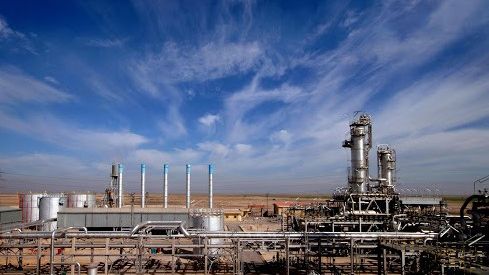
Oil Minister Javad Owji has said that Iran plans to increase its daily oil production to 5.7 million barrels per day without providing any timeframe.

Oil Minister Javad Owji has said that Iran plans to increase its daily oil production to 5.7 million barrels per day without providing any timeframe.
Owji also said Iran increased it income year-on-year by 250 percent from oil, gas condensates, petrochemical products, and natural gas in the Iranian year ended on March 20 due to new customers and diversified contracts.
Opec (Organization of Petroleum-Exporting Countries) put Iran’s average 2021 production at 2.405 million barrels a day (BPD), up from 2 million in 2020 but lower than the 3.8 million before the US imposed ‘maximum pressure’ sanctions in 2018 threatening punitive action against third parties buying Iranian crude and slashed Iran’s exports.
"In parliament, lawmakers decided to raise the ceiling of exports of oil and condensates from 1.2 million barrels (per day) to 1.4 million barrels,” Owji said. “The Oil Ministry will do everything in its power to realize the level set in the budget.”
In late 2020, Iran announced an ambitious plan to raise production capacity to over 6.5 million bpd by 2040, although some pundits say this would is unrealistic due to the sanctions that have prevented Iran from pumping at anywhere near capacity since 2018. Opec said in its latest report that Iran’s crude production in February rose by 44,000 barrels a day (bpd) from January to 2.546 million barrels.

Resolving Iran’s economic problems and improving people’s lives in the near future is not realistic, Supreme Leader Ali Khamenei said in a New Year message.
Khamenei in a rare instance admitted that people faced “hardships, high prices and inflation” in the past Iranian year, which ends on Sunday, March 20, but expressed doubt if the economic crisis can be overcome soon.
“Well, [economic hardship] should be resolved. We hope part of these [problems] can be resolved in the coming year, since all cannot be dealt with. These [problems] will be resolved gradually,” he said in his customary New Year video message.
Khamenei rarely admits that the country faces serious economic problems, often praising progress and highlighting the resilience of the Islamic Republic in confronting challenges and overcoming what he calls “enemy” conspiracies.
Iran’s economy experienced a serious recession from 2018-2020 as the United States withdrew from the Obama-era nuclear agreement, the JCPOA and imposed tough oil and banking sanctions. Its currency rial has lost value eightfold and inflation has been hovering around 40 percent for more than a year. Officials say a slight economic growth has started since 2021 but it has had little impact on the hardships people face.
Khamenei maintained that “to show haste and say that, no, soon [problems will go away], is not realistic.”
Despite admitting that serious economic problems exist, Khamenei insisted that the “Americans confessed…that they experienced a humiliating defeat in their ‘maximum pressure’ against the Iranian people.” Khamenei underlined that the word “humiliating” was used by Americans themselves. He was clearly referring to statements by Biden administration officials who repeatedly have said that sanctions imposed by former president Donald Trump have failed to change Iran’s behavior.
This was the second time in recent months Khamenei has used statements by the Biden administration to claim victory against US sanctions, while Iran has faced a dangerous economic crisis.
Hardliners who are loyal to Khamenei bashed former president Hassan Rouhani for the long-running economic crisis, while the main cause of the deterioration in the already weak economy were US sanctions. Admitting the devastating impact of restrictions on oil exports and international banking would mean accepting that Khamenei’s anti-West foreign policy was the cause of hardships.
Khamenei backed Ebrahim Raisi (Raeesi) for president in the June 2021 vote, with hardliners insisting that a government dominated by their faction could address economic problems despite US sanctions.
Raisi has not been able to achieve much since last August, except more clandestine oil exports to China because of less strict US implementation of sanctions by President Joe Biden’s administration.
Nuclear talks lasting for a year have not revived the JCPOA, although apparently the United States has been willing to make important concessions.
Khamenei also claimed that last years presidential elections was “one of the sweet” events, praising voter participation. In fact, Iran experienced the lowest rate of voter turnout, below 50 percent, as all serious candidates were barred from running against Raisi, making it a completely uncompetitive vote.
The 83-year-old cleric ruling Iran since 1989 also praised the handling of the Covid-19 pandemic, while he had banned the purchase of American and British vaccines in January 2021, leading to the unnecessary deaths of tens of thousands of people in a severe wave of infections from June to September.
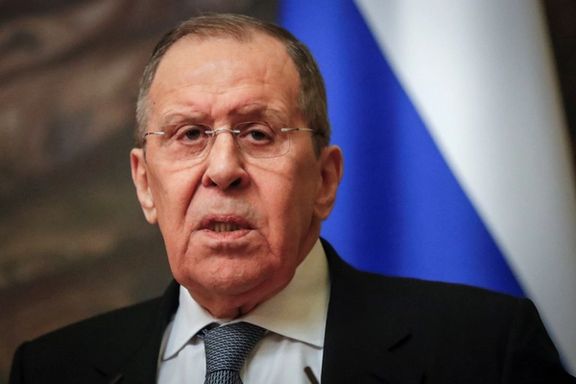
Foreign Minister Sergei Lavrov says Russia never betrays Iran and does not pursue selfish interests in the reinstatement of the 2015 nuclear deal despite a possible boost to world oil supplies.
Lavrov made the remarks on Saturday in response to a question whether restoring the Joint Comprehensive Plan of Action (JCPOA) was advantageous to Russia, considering that it would resume Iranian oil supply to the global market.
"We never betray our friends in politics. Venezuela is our friend, and Iran is a state that is very close to us. Secondly, we do not pursue selfish interests, unlike the Americans", he told finalists in the Leaders of Russia competition.
"You can see what they [the Americans] are actually doing, trying to spite Russia and teach it a lesson,” Lavrov added by considering adding Iranian, Venezuelan and other oil supplies to the international market.
"So, the Americans have been contacting Saudi Arabia, the Emirates and Qatar regarding oil and gas. All of those countries, just like Venezuela and Iran, clearly said: when we discuss issues pertaining to the appearance of new actors in the oil market, all of us are committed to the OPEC+ format, where quotas for every actor are discussed and agreed upon by consensus", he said, noting that "For now, I see no reason to believe that this mechanism may somehow be dismantled. No one is interested in that”.
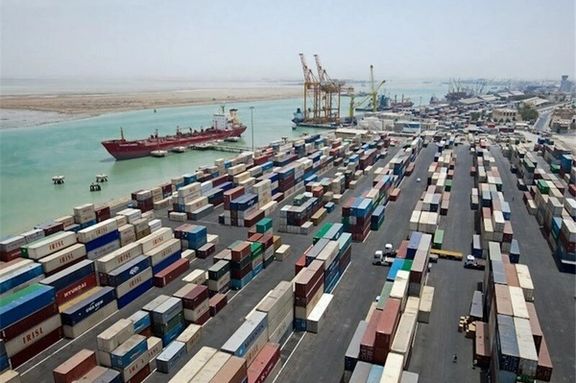
Iran has reportedly signed a deal with Russia to import 20 million tons of basic goods, including vegetable oil, wheat, barley and corn.
NourNews, which is affiliated with the secretary of Iran's Supreme National Security Council (SNSC), Ali Shamkhani, said on Saturday that Iran’s Agriculture Minister Javad Sadatinejad signed the agreement during a visit to Russia last week.
NourNews did not report the monetary value of the deal.
The report said the deal is to address concerns about shortages of basic goods and livestock feed in the next Iranian year, starting on March 21.
Iran eliminated a major subsidy for importing food and animal feed recently, raising fears of rising prices in the new year. According to a report by ISNA on Saturday, out of about $19 billion worth of basic goods imported in the past 12 months nearly $15 billion was subsidized with cheap dollars provided to importers.
Earlier in March, the parliament decided to scrap the multi-billion-dollar subsidy for essential food and medicines, despite warnings of more inflation and hardship.
The idea to eliminate the subsidy emerged after hardliner president Ebrahim Raisi (Raeesi) assumed office in August and could count on backing from conservatives and ultra-conservatives in control of Iran’s parliament.
The deputy head of Iran’s Customs Administration, Foroud Asgari, said about 30 million tons of basic goods have been cleared through customs and entered the country.
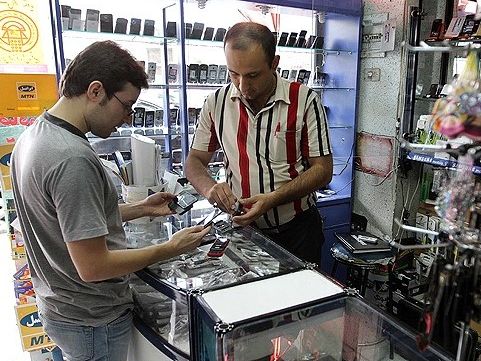
Iran with a population of 84 million has imported over 18 million mobile phones in the last 12 months, with Samsung and Xiaomi having the largest market share.
The spokesman for the association of mobile phone importers, Mohammadreza Aalian, told IRNA that Samsung had a 48-percent market share with 8,710,000 phones of different models worth nearly $1.88 billion.
Chinese brand Xiaomi had 28 percent of the market with 5,210,000 million cellphones, which totaled about $1.1 billion.
The third brand was Nokia with 12 percent or 2,250,000 that was worth only $54 million because most were simple devices, not smartphones.
Apple had a 6-percent share with 1,030,000 phones worth $1.35 billion, making it the runner-up in terms of the total value.
According to an earlier report by Tasnim news agency, Iran spent $9 billion in foreign currency to import 45 million cellphones in 33 months, until the end of 2021, with a large portion going for “luxury” devices with a price tag of over $600.
According to Tasnim’s data, around one quarter of the money, or about $2.3 billion was spent on importing just two million luxury phones – mainly from the American brand Apple. This is less than five percent of the total number of phones bought by the people. Buying such cellphones is too extravagant for most Iranians with ordinary nine-to-five jobs who are paid about $100 to $200 per month.
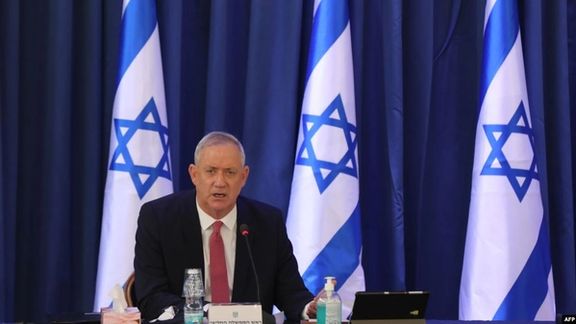
Israel's Kan 11 television says defense minister Benny Gantz refused to join a statement, openly opposing the US over delisting of Iran's Revolutionary Guards.
Prime Minister Naftali Bennet and Foreign Minister Yair Lapid issued a statement on Fridaycriticizing what they said was US intentions to remove the Revolutionary Guards (IRGC) from the foreign terrorist organizations blacklist. They appealed to the United States not to delist the top military force of its arch-foe, which it considers as a threat to Israel's existence.
The state-owned Kan 11 on Friday said that Gantz refused to sign the scathing statement.
Gantz spoke with the US Defense Secretary Lloyd Austin hours after the statement issued and thanked the US Senate for approving a $4.8 billion defense aid package for Israel. According to a statement issued by the Defense Minister's office, Gantz and Austin "discussed the details of the emerging nuclear agreement and Israel's position regarding its components."
The delisting of the IRGC appears to be Iran's last condition for signing a deal after nearly a year of intense negotiations to restore the 2015 nuclear agreement, the Joint Comprehensive Plan of Action (JCPOA).
Kan 11 said Israel does not believe that Iran will abide by any commitments it may make in a new deal. Reports have said that US is seeking a guarantee from Tehran to curtail IRGC activities beyond Iran’s borders.
"The attempt to delist the Iran's Revolutionary Guards as a terrorist organization is an insult to the victims,' Israeli Prime Minister Bennett and Foreign Minister Lapid say in a joint statement Friday.
The statement comes after State Department spokesman Ned Price on Wednesday said Washington and Tehran were "close to a possible deal" but "not there yet". "We do think the remaining issues can be bridged," he added.
Under former President Donald Trump in 2019, the United States designated the IRGC as a "foreign terrorist organization" after unilaterally withdrawing from the JCPOA and imposing draconian sanctions on the Islamic Republic.
"Prime Minister Naftali Bennett and his ministers don’t make a habit of squabbling publicly with the Americans, but they have plenty of complaints about flaws in the new agreement, which they believe will leave Israel in a more dangerous position than after the original 2015 nuclear deal," a commentary in Israel's Haaretz on Friday said.
The White House Spokeswoman Jen Psaki said Thursday that there is "ongoing negotiation" over delisting the IRGC. "I’m not going to get into specifics of it.But I would just note that the status quo where we stand has done nothing to make us safer in any regard.In fact, the Islamic Revolutionary Guard has only been strengthened," she said.
Psaki also said the notion that the actions of the past administration pulling out of the Iran nuclear deal has reduced the actions or the escalatory behavior of the Iranian Revolutionary Guard "is inaccurate". "They’ve actually -- the Iranian government has actually doubled their budget or something like that," she added.
Iranian officials have not recently spoken of delisting the IRGC as a condition to signing an imminent deal but on March 9 a member of the parliament's National Security and Foreign Policy Committee, Hossein Noushabadi, said the issue of delisting the IRGC had repeatedly been discussed during the talks in Vienna with "promising results".